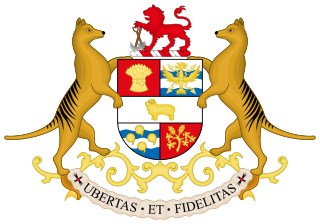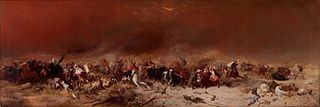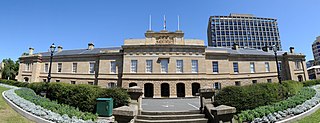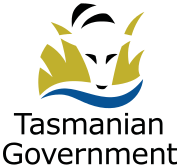
The Premier of Tasmania is the head of the executive government in the Australian state of Tasmania. By convention, the leader of the party or political grouping which has majority support in the House of Assembly is invited by the Governor of Tasmania to be Premier and principal adviser.

The history of Tasmania begins at the end of the most recent ice age when it is believed that the island was joined to the Australian mainland. Little is known of the human history of the island until the British colonisation in the 19th century.

The House of Assembly, or Lower House, is one of the two chambers of the Parliament of Tasmania in Australia. The other is the Legislative Council or Upper House. It sits in Parliament House in the state capital, Hobart.

The Tasmanian Legislative Council is the upper house of the Parliament of Tasmania in Australia. It is one of the two chambers of the Parliament, the other being the House of Assembly. Both houses sit in Parliament House in the state capital, Hobart. Members of the Legislative Council are often referred to as MLCs.

Guy Barnett is a Liberal Party member of the Tasmanian House of Assembly representing the Division of Lyons and Parliamentary Secretary to the Premier. He was previously a member of the Australian Senate.

The Parliament of Tasmania is the bicameral legislature of the Australian state of Tasmania. It follows a Westminster-derived parliamentary system and consists of the Governor of Tasmania, the Tasmanian House of Assembly, and Tasmanian Legislative Council. Since 1841, both Houses have met in Parliament House, Hobart. The Parliament of Tasmania first met in 1856.

The Government of New South Wales, also referred to as the New South Wales Government, NSW Government or Her Majesty’s Government, is the Australian state democratic administrative authority of New South Wales. It is currently held by a coalition of the Liberal Party and the National Party. The Government of New South Wales, a parliamentary constitutional monarchy, was formed in 1856 as prescribed in its Constitution, as amended from time to time. Since the Federation of Australia in 1901, New South Wales has been a state of the Commonwealth of Australia, and the Constitution of Australia regulates its relationship with the Commonwealth. Under the Australian Constitution, New South Wales ceded legislative and judicial supremacy to the Commonwealth, but retained powers in all matters not in conflict with the Commonwealth.

The Government of Victoria is the executive administrative authority of the Australian state of Victoria.
Marinus Theodoor "Rene" Hidding is an Australian politician. He was a Liberal Party member for the Division of Lyons in the Tasmanian House of Assembly from 1996 until his resignation in 2019. From 2002 until 2006 he was also leader of the Liberal Party and Leader of the Opposition in Tasmania.

William Edward Felix Hodgman is an Australian politician who served as the 45th Premier of Tasmania. He was a member for the Division of Franklin in the Tasmanian House of Assembly from the 2002 state election until his resignation in January 2020. He became premier following the 2014 state election, having been Leader of the Opposition since 2006. He was re-elected to a second term in government following victory in the 2018 state election. In March 2018, he succeeded Angus Bethune as the longest-serving leader in the history of the Tasmanian Liberals. He resigned as the Premier of Tasmania, the Leader of the Tasmanian Liberals and Member of the Parliament of Tasmania on 20 January 2020. Hodgman is from Hobart and was educated at the University of Tasmania. Hodgman's father, uncle, and grandfather also served in the Parliament of Tasmania.

Parliament House, Hobart, located on Salamanca Place in Hobart, Tasmania, Australia, is the meeting place of the Parliament of Tasmania. The building was originally designed as a customs house but changed use in 1841 when Tasmania achieved self-government. The building served both purposes from 1841 to 1904, when the customs offices were relocated.

Jeremy Page Rockliff has been a Liberal Party member of the Tasmanian House of Assembly in the Division of Braddon since the 2002 election.
A Political families of Australia is a family in which multiple members are involved in Australian politics, particularly electoral politics. Members may be related by blood or marriage; often several generations or multiple siblings may be involved.
Peter Carl Gutwein is an Australian politician. He has been a Liberal Party member of the Tasmanian House of Assembly since 2002 representing the seat of Bass. On 20 January 2020, he replaced Will Hodgman as leader of the Liberal Party in Tasmania, and was sworn in as 46th Premier of Tasmania later that day.

The 2010 Tasmanian state election was held on 20 March 2010 to elect members to the Tasmanian House of Assembly. The 12-year incumbent Labor government, led by Premier of Tasmania David Bartlett, won a fourth consecutive term against the Liberal opposition, led by Will Hodgman, after Labor formed a minority government with the support of the Greens.
Nicholas Clive Kurt "Nick" Evers was an Australian politician.
Sir Eardley Max Bingham QC, known as Max Bingham, is a former Deputy Premier and Opposition Leader of Tasmania, who represented the electorate of Denison for the Liberal Party in the Tasmanian House of Assembly from 1969 to 1984.
Sir Herbert Nicholls was an Australian judge and politician, who was Chief Justice of Tasmania from 1914 to 1937, and as an independent member of the Tasmanian House of Assembly from 1900 to 1909. In parliament, he served as Attorney-General and Leader of the Opposition.

The next Tasmanian state election is scheduled to be held in or before 2022 to elect all 25 members to the Tasmanian House of Assembly.















